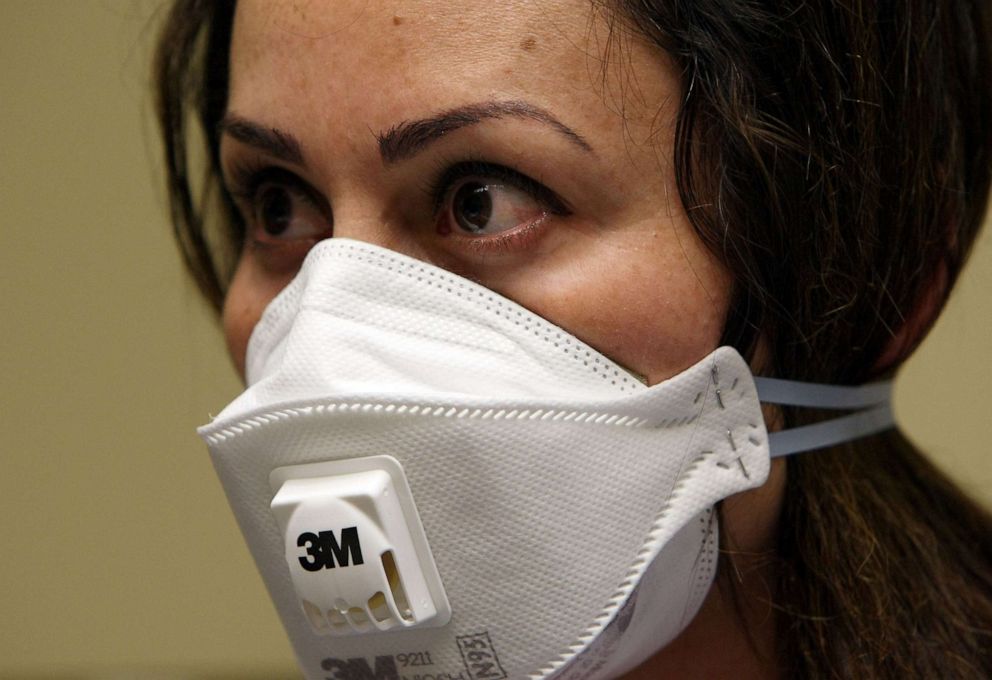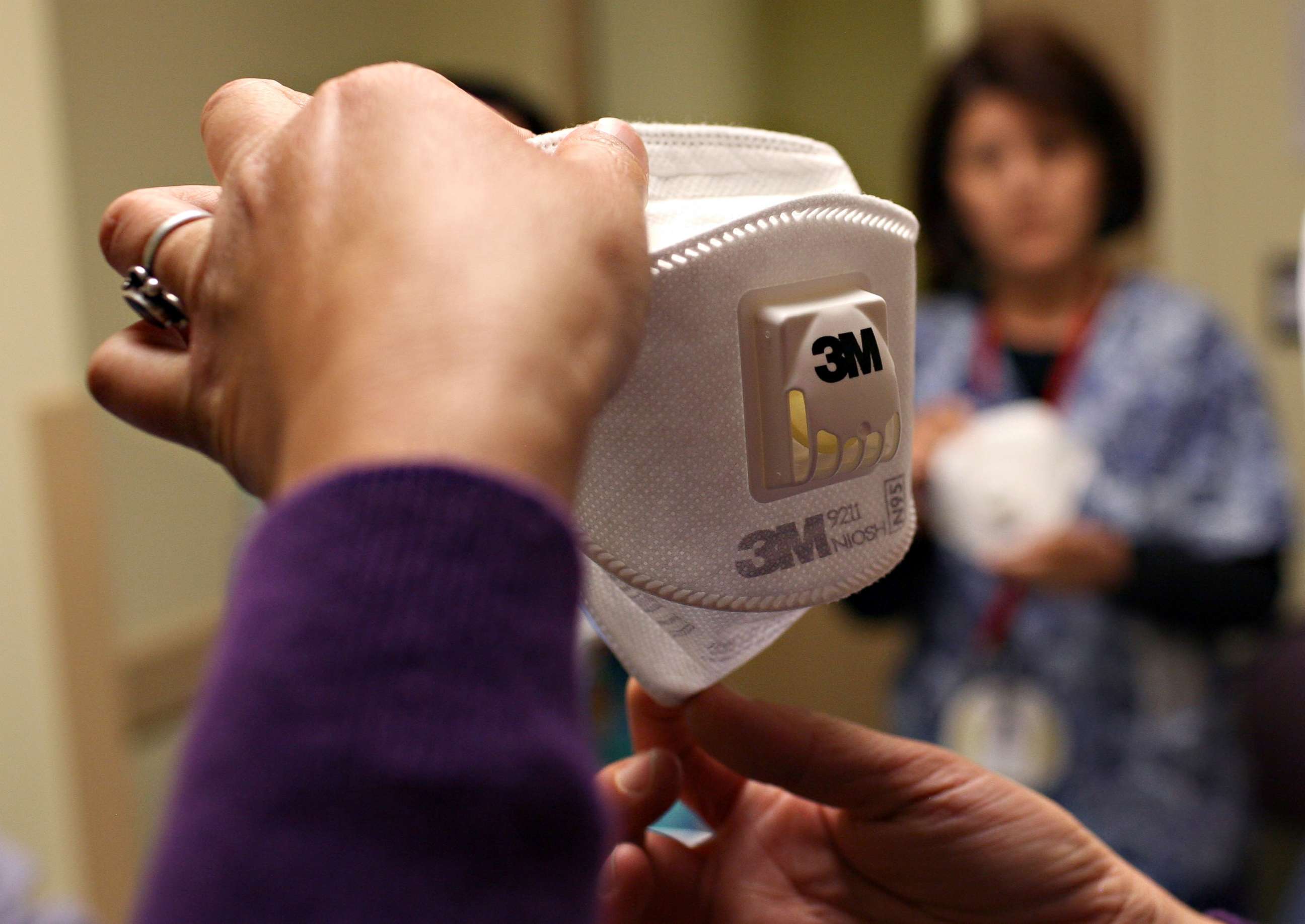You may want to ditch that valve face mask: The pros and cons
Valve masks are a type of N95 mask with a one-way valve.
The novel coronavirus pandemic brought society a new definition of normal which now includes wearing face masks. While the benefits of masks are clear, widespread use unearthed a host of drawbacks: face irritation, difficulty breathing, moisture buildup and the dreaded foggy glasses.
One type of mask called a "valve mask" helps solve some of these problems, but is now under fire for not protecting the public as it should -- drawing into question whether they should be used at all.
N95 masks, masks that protect against at least 95% of very small (0.3 micron) particles, became the gold standard for mask protection during the pandemic.

Valve masks are a type of N95 mask that have a one-way valve allowing exhaled air to pass through a small round or square filter disc attached to the front. Some commercially available cloth masks also feature a valve
Valve masks have several benefits. In addition to protecting the wearer if fitted correctly, they allow easier exhalation than traditional masks, prevent humidity and and reduce uncomfortable heat and carbon dioxide buildup inside the mask.
Even though valve masks adequately protect the wearer, they fall short because of the valve design which only filters air breathed in, but not breathed out.
The purpose of the Centers for Disease Control and Prevention's universal masking guidelines is to prevent viral transmission from infected individuals to people around them. Exhaled air passes unfiltered into the environment, taking potential coronavirus droplets with it and defeating the mask's one important purpose -- protecting those around you.
"We want to protect you from me. And so, this valved N95 [mask] really doesn't function appropriately in this COVID environment-- either in the health care setting, or in the community," said William Schaffner, MD, professor of preventive medicine and infectious disease at Vanderbilt University Medical Center.
Some states have drawn a hard line against their use. California's Bay Area counties banned their use as part of their universal mask order that went into effect April 17. Violation of the order is punishable as a misdemeanor under the California Health and Safety Code, and can result in a fine up to $1,000, imprisonment up to 90 days or both.
While valve masks outwardly appear like a technological step up from a homemade cloth or a standard surgical mask, an old fashioned cloth or surgical mask is actually superior for the COVID-19 pandemic.

"Cloth and surgical masks would clearly rank superior ... the N95 valve mask doesn't protect everyone around me. Of course, the major reason the CDC began to recommend the universal use of masks in the community was because of asymptomatic infection and wishing to reduce the transmission from the person who is infected to others," Schaffner said,
And what about those who insist standard masks are just too uncomfortable?
Schaffner advised they 'get with the program.'
"Sorry about that… if you're wearing masks just to protect yourself that's different than the program that we're thinking of -- the goal that we're trying to implement."
What to know about coronavirus:
- How it started and how to protect yourself: Coronavirus explained
- What to do if you have symptoms: Coronavirus symptoms
- Tracking the spread in the U.S. and worldwide: Coronavirus map
Nancy A. Anoruo, MD, MPH is an internal medicine resident physician with a focus on public health at the University of Massachusetts Medical School, and a contributor to the ABC News Medical Unit.






